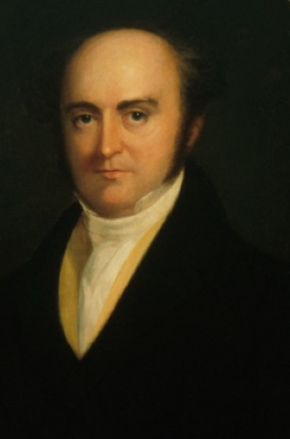You are here
Circuit Court Opinions:
Associate Justice Levi Woodbury, United States v. New Bedford Bridge (1847)

United States v. New Bedford Bridge, 27 F. Cas. 91 (C.C.D. Mass. 1847) (No. 15,867) [First Circuit]
The United States brought a criminal indictment against the private company that had, with the state’s authorization, built the New Bedford Bridge spanning the Acushnet River in Massachusetts. The indictment charged that the bridge violated federal law by interfering with the navigation of a waterway and thereby infringing on the authority of Congress to regulate interstate commerce.
Justice Woodbury began by noting that the defendants could not have acted unlawfully if Massachusetts had acted within its constitutional authority in granting them a charter. Because the Acushnet River lay entirely within the state, he ruled, Massachusetts had authority to make regulations concerning it. While the Constitution had vested in Congress the power to regulate navigable waterways affecting interstate commerce, it had not deprived the states of the ability to regulate their local waterways, even if those waterways were used in interstate commerce. Thus, the states could exercise their reserved powers “with impunity” as long as their regulations did not conflict with laws passed by Congress. When they did conflict, federal law took precedence, rendering the state regulation invalid. In this case, no federal law made the obstruction of a navigable waterway an indictable offense or granted the circuit courts jurisdiction over such cases. Woodbury therefore dismissed the indictment.
Although a strong advocate of states’ rights, Woodbury recognized the potential difficulties that could arise from the states’ regulation of their waterways, particularly if states prioritized improvements to land travel that could interfere with navigation on the water. The solution, he pointed out, lay with Congress, and not the courts. With the rapid increase in construction of bridges and other potential obstructions, he wrote, “it may become necessary for Congress to wake up more of its dormant powers to regulate commerce, and provide relief and redress, criminal and civil, in all cases of this kind clearly within its authority.” In 1899, Congress enacted the Rivers and Harbors Appropriation Act, which prohibited the construction of bridges and other structures over or in the navigable waters of the United States without congressional approval.
In 1852, the Supreme Court decided Cooley v. Board of Wardens, which some scholars identify as the beginning of the Court’s dormant Commerce Clause jurisprudence. Under the dormant Commerce Clause theory, courts may invalidate state regulations interfering with commerce, even if those regulations do not conflict directly with federal law. The Court first struck down a state law on these grounds in Case of the State Freight Tax (1873).
